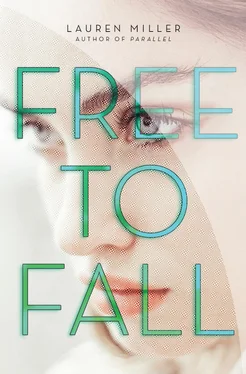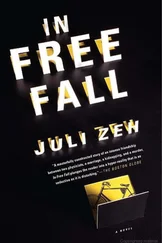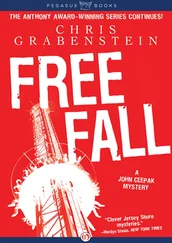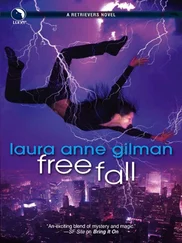I scanned the list from the bottom up. “Akratic Paracusia Disorder (APD),” the third topic from the top, caught my eye.
Choose that one.
The voice was unequivocal, a quiet scream. Twice in two hours. My insides went taut as the words of a nursery rhyme I’d sung as a child sprung to mind, an incessant refrain in my head. Watch out, little girl, for the Doubt, watch out, watch out, watch out.
Beads of sweat popped up along my hairline. I hadn’t heard the voice since my eleventh birthday and now I’d heard it three times in less than twenty-four hours. I gave my head a firm shake to clear it. Don’t make this a big deal. Just let Lux decide and be done with it.
I tapped the auto-select button and my name appeared in gray next to “Claustrophobia.” All I had to do was press CONFIRM. My eyes darted back to topic number three. The space next to it was still blank.
Choose that one.
It was ironic, the Doubt telling me to choose the Doubt. That’s what APD was. The medical term for adults who listened to the inner voice. I knew because I’d heard Beck’s parents use it. It was the diagnosis they were so desperate to avoid.
When we were kids, Beck’s parents would tease him about the voice he heard, asking what the Doubt wanted for dinner, whether the Doubt liked chocolate ice cream, if the Doubt wanted milk with its cookie, to which Beck would patiently respond that the Doubt wasn’t a person, but a spirit, and spirits couldn’t eat because spirits didn’t have bodies. When we got older, and the rest of us began to ignore the voice, his parents stopped laughing. He was ushered to a psychiatrist who prescribed the antipsychotic Evoxa and recommended that Beck double up on extracurriculars and spend more time interacting online to keep his mind occupied. Beck ignored his advice, and the voice kept talking. He told his parents he didn’t hear it anymore, just so they’d leave him alone, but I knew they still worried. I didn’t know enough about the disorder to understand why.
My finger hovered over the CONFIRM button, my name still in gray next to “Claustrophobia.” What made choosing APD as my research topic so irrational? It had to be, because that’s what the Doubt did, by definition: It hijacked your thoughts, making you doubt what your rational mind knew to be true. Curious, I scrolled down to see where APD appeared on Lux’s recommendation list.
It was at the very bottom.
“Thirty seconds!” Rudd announced. The list was filling up fast.
Choose that one.
I’m not listening to the Doubt, I told myself. I’m protecting myself from it. Knowledge was power, after all. Before I could think twice, I typed my name next to topic number three and tapped CONFIRM.
“THE FOOL IS DESTINED TO REPEAT HISTORY. The wise man has the wit to avoid it.”
My history teacher, a wiry white-haired man in his seventies, was giving an overview of our coursework for the semester, but I was only half listening. While everyone else was dutifully scrolling through the syllabus, I was on Panopticon, my mind whirling but not registering any coherent thought. I’d read the entry for APD before, but it had different significance now.
Akratic Paracusia Disorder: from the ancient Greek akrasia “lacking command over oneself” and para + acusia “beyond hearing.” A psychiatric disorder characterized by persistent arational auditory hallucinations expressed as a single voice. The voice, known colloquially as “the Doubt,” is commonly heard by healthy prepubescent children and believed to coincide with the rapid synaptic growth of the frontal cortex that occurs in early adolescence. The postpubescent presence of the voice, however, indicates a predisposition for Akratic Paracusia Disorder, or APD. Diagnosis is based on observed behavior and the patient’s reported experiences.
Although the specific cause of the disorder is unknown, factors that increase the risk of developing the disorder include a family history of APD or extended periods of high stress, emotional changes, or isolation from one’s peers. If caught early, APD can be treated with antipsychotic medication . Without pharmaceutical intervention, the akratic brain quickly degenerates, resulting in self-destructive behavior and, eventually, dementia .
Our teacher stepped into my sightline.
“Any questions?” he asked pointedly, looking directly at me. I gave my head a tiny shake, lowering my tablet onto my lap. He nodded and moved on. I closed out of Panopticon and pulled up my history syllabus, but I still couldn’t concentrate. My vision blurred and all I could see were the words predisposition and degenerate and dementia over and over on the page.
I’d spent so much time worrying about Beck’s mental health. Should I have been nervous about my own? Half an hour after resolving to ignore the Doubt, I’d done exactly what it’d told me to do. That’s not why I did it, I reminded myself. I had perfectly rational reasons for picking APD as my topic. Still, the fact that I was hearing the voice at all had me completely unhinged. My mind was jumpy and frantic, like a frog caught in a jar. Third period passed in a blur of words I didn’t hear. I had to get this under control, fast.
I wasn’t hungry, but I went to lunch anyway, trailing behind a group of girls from my history class who seemed to know one another from summer camp. Someone had opened the dining hall windows, and the noise from inside reverberated off the courtyard walls.
Hershey waved me over when I walked in. She was at the salad bar, heaping lettuce onto a dark metal plate. From the smile on her face, it seemed the morning’s foul mood had lifted.
“I am obsessed with these plates,” she said when I walked up.
I reached for one. It was so cold it made my fingers throb. I turned it over in my hands, wondering what it was made of, and saw a thick, shimmery, uppercase G etched into its surface. My eyes flicked to the plate dispenser and saw another G there. Gnosis hadn’t just donated the classroom gadgets; they’d stocked the dining hall too.
Hershey had moved from the lettuce to the cucumbers. I followed along behind her, mechanically dropping toppings onto my plate. The produce on the salad bar was bright and colorful and fresh, certified organic and sourced from a nearby farm, but I wasn’t hungry for it. The Doubt had stolen my appetite.
“You think he’s single?” I heard Hershey ask. I followed her gaze. Rudd had just emerged from the hot-food line.
“He’s a teacher.”
“He’s not my teacher,” Hershey replied, nudging me with her hip. “And he’s not wearing a ring.”
She waggled her eyebrows and headed to the pasta bar while I looked for a place to sit. Back home, I never ate in the lunchroom. Beck and I always spent our free period off campus, opting out of the social hierarchy. Standing there alone with my tray, I remembered why. I shifted awkwardly from one foot to the other. There weren’t any empty tables.
“C’mon,” Hershey said behind me, sauntering past me with her tray.
We sat at a table by the window with two girls from Hershey’s section, Rachel and Isabel, and the three of them gossiped about the other members of their section and their faculty adviser’s fashion sense while I picked at my salad.
“Ugh, you’re so good,” I heard Isabel say. She had pale blond hair and wore glasses that I’m pretty sure cost more than my whole wardrobe. “I suck at food,” she explained, gesturing at the half-eaten cheeseburger on her place, wedged between a pile of French fries and a mountain of mac and cheese. “I’m eleven pounds over Lux’s recommended weight,” she said. “Which I know I should loathe and feel motivated to do something about, but I just don’t care that much, you know? I like the way I look. And the way fries taste.” She eyed my salad. “Meanwhile, I’ll bet you picked that without even asking Lux. Which is why you’re, like, half my size.”
Читать дальше












